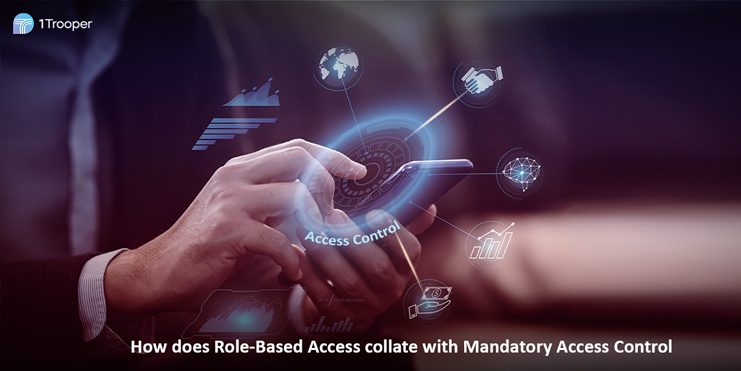
Both role-based access control (RBAC) and mandatory access control (MAC) are distinct approaches to regulating access to files, computer resources, and operating systems. Nevertheless, they are both aimed at the same objective of safeguarding information and data by allowing only authorized individuals within an organization to access it. As an essential element of data security, access control operates in conjunction with authentication and authorization to authenticate the identity of users, thereby providing access to data that their level of access permits.
Role-Based Access Control vs Mandatory Access Control
While Mandatory Access Control (MAC) offers greater security compared to the RBAC system, the responsibility of setting up and managing the system can be burdensome for the central administrator. The process of approving new access requests may also be time-consuming as the administrator needs to determine the user’s hierarchical position.
Although this may be acceptable in high-security organizations, many organizations today rely heavily on multiple software packages and computer systems, and they view the lack of flexibility in MAC as a significant drawback.
On the other hand, role-based access control systems offer the advantage of the flexibility to adapt swiftly to the introduction of new software and systems, as well as changes in personnel. By using automated RBAC systems, it is possible to quickly onboard new users, update permissions based on their roles, and revoke access as soon as they leave the organization.
This automation brings down the dependence on the judgment of a single central administrator and reduces the possibility of human error. Furthermore, these systems provide better visibility and an audit trail that strengthens controls in these areas and meets the compliance requirements of highly regulated industries like finance and healthcare. Hence, RBAC systems are highly appealing to organizations operating in such industries.
How can 1Trooper help with access control?
Automated role-based access control is a key feature of 1Trooper, integrated as a fundamental component of its functionality. As soon as a new employee joins, the system grants them access to the company’s data and systems automatically, based on their designated role. Further, 1Trooper offers fine-grained access control at an entitlement level and can be leveraged to manage permission levels within applications, such as read-only or edit permissions.




